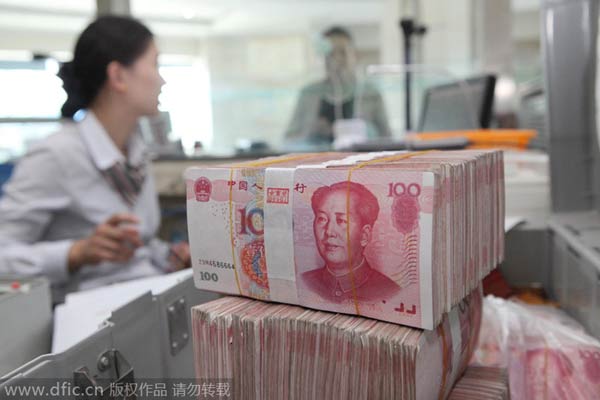 |
|
An employee counts renminbi (yuan) banknotes at a bank in Lianyungang city, East China's Jiangsu province, June 4, 2014.[Photo/IC] |
The Chinese authorities have stepped up reform of the exchange rate formation mechanism this week to make it more market-oriented, which is in line with the currency reform road map the country embarked on 10 years ago.
China lowered its daily midpoint reference of the yuan against the US dollar by 1.6 percent on Wednesday after lowering it by 1.86 percent the day before.
The International Monetary Fund sees the move as "a welcome step". But some analysts have interpreted it as a way for China to tackle its current economic downturn and, in particular, an effort to bail out its ailing export sector.
Given the poor economic data in recent months, their argument may sound tenable - the official data show that in the first seven months exports fell 0.9 percent from a year ago. But it is unlikely China would make a major policy change that is set to have global ramifications simply out of short-term growth considerations.
The country has a history of refusing to adopt a "beggar-thy-neighbor" competitive devaluation strategy to its own benefit, a stance that was most clearly reflected by its costly decision not to let the yuan depreciate to help anchor the regional situation during the 1997-98 Asian financial turmoil.
Admittedly, the Chinese economy is suffering from weaker growth and continuing downturn pressures, but policymakers still have ample financial and fiscal ammunition to keep the ball rolling.
Moreover, resorting to currency depreciation may boost trade only temporarily, but will lose steam in the long run. Worse, as the real effective rate of the yuan against other currencies has been on the rise, the recent fall in the yuan's nominal value could be meaningless to the exporters.
In fact, the current way of managing the yuan's exchange rate has resulted in large accumulated differences between the official central parity rate and the market rate, which is not conducive to finding the real market value of the yuan and prevented it from becoming a real international currency.
It is more reasonable, therefore, to see China's move as a way to seek long-term financial resilience and further internationalization of its currency by gradually liberalizing its exchange rate formation system.
The timing may have surprised the markets. The move serves the country's long-term ambition to build a more flexible and market-based exchange rate formation system that is, as the IMF said on Wednesday, "important for China as it strives to give market forces a decisive role in the economy and is rapidly integrating into global financial markets".